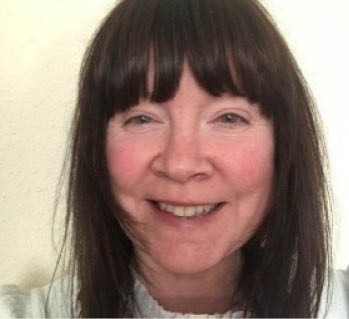Professor Karen Saunders
Professor Karen Saunders is a Consultant Research Fellow neuro-physiotherapist and a core member of the Cross Specialty Research Team at East Kent.
Professor Saunders works clinically at an advanced level with people who have neurological conditions and has over 20 years experience in this area. She is also working on a PhD Doctoral research programme at Kent University to support brain injury survivors to better manage long term health issues using co-production principles.
Professor Saunders regularly contributes to the teaching and education of medical, healthcare and research colleagues in the UK, US, India and Bangladesh. In recognition of this work, she has been appointed as an Honorary Professor in Physiotherapy and Rehabilitation at Jashore University of Science and Technology in Bangladesh.
Recently, Professor Saunders has taken on the role of International Advisor for the Kent Brain Injury Foundation charity. This is a new charity focused on supporting vulnerable individuals and communities in Bangladesh, organised by the Chairman Dr Mohamed Sakel, FRCP (UK).
Professor Saunders has worked on several research projects supporting knowledge development relating to people living with spinal cord injury. She was invited to present on a current qualitative collaborative research project focused on spinal cord injury survivors’ experience of ‘Long Covid’ during the pandemic in Bangladesh at ISCoS 2021. Sharing this research knowledge at ISCoS presents an opportunity to potentially build collaborative relationships with other researchers, who might attend ISCoS, so that the project could apply for grant funding of future research in this area. Additional grant funding, within a collaborative network of researchers from other countries, would enable the project to scale up and gain perspectives from across different geographical, cultural, political and socio-economic environments.
Karen shares her experiences from the conference.
“Participation at ISCoS virtual 2021 enabled me to meet other SCI grantee award winner researchers through a video-based pre-conference meeting, who are working within the field of spinal cord injury research. This was very interesting as it gave me the opportunity to learn and exchange some information on my research and learn about theirs and where they are based in the world. After this meeting, I requested to the organisers, if we could share and exchange contact names and emails and this was subsequently agreed and we have shared our details securely within the group. This means that I have extended my professional network of colleagues, who I am now aware of, who are also working within spinal cord injury research, for example, I am now aware of colleagues, who are working on research projects in India and Kenya. Therefore, in the future, it might be possible to consider some future research grant applications with these colleagues if they are interested.
There were a number of lectures that I attended in the programme, that were very informative and information shared within these lectures might potentially help when we write future research grant funding applications.
The highlight for me was definitely having the opportunity to present our qualitative research as a poster on ‘COVID-19 survivorship: A qualitative study of persistent symptoms or Long Covid experienced by people living with spinal cord injury in Bangladesh.’ It was enjoyable to check into the poster every day to see if anyone had left or made any comments about our research.”

